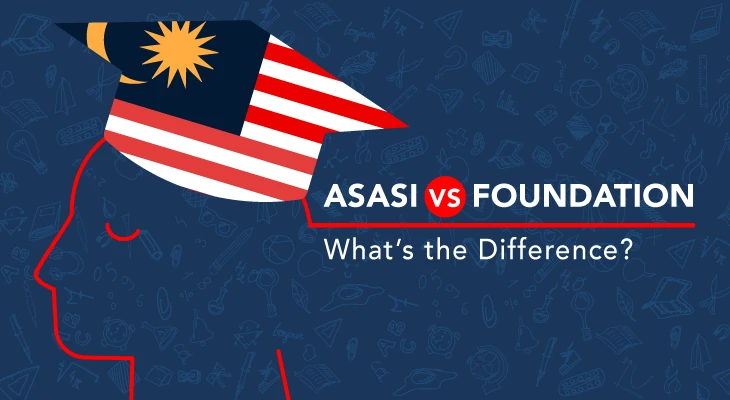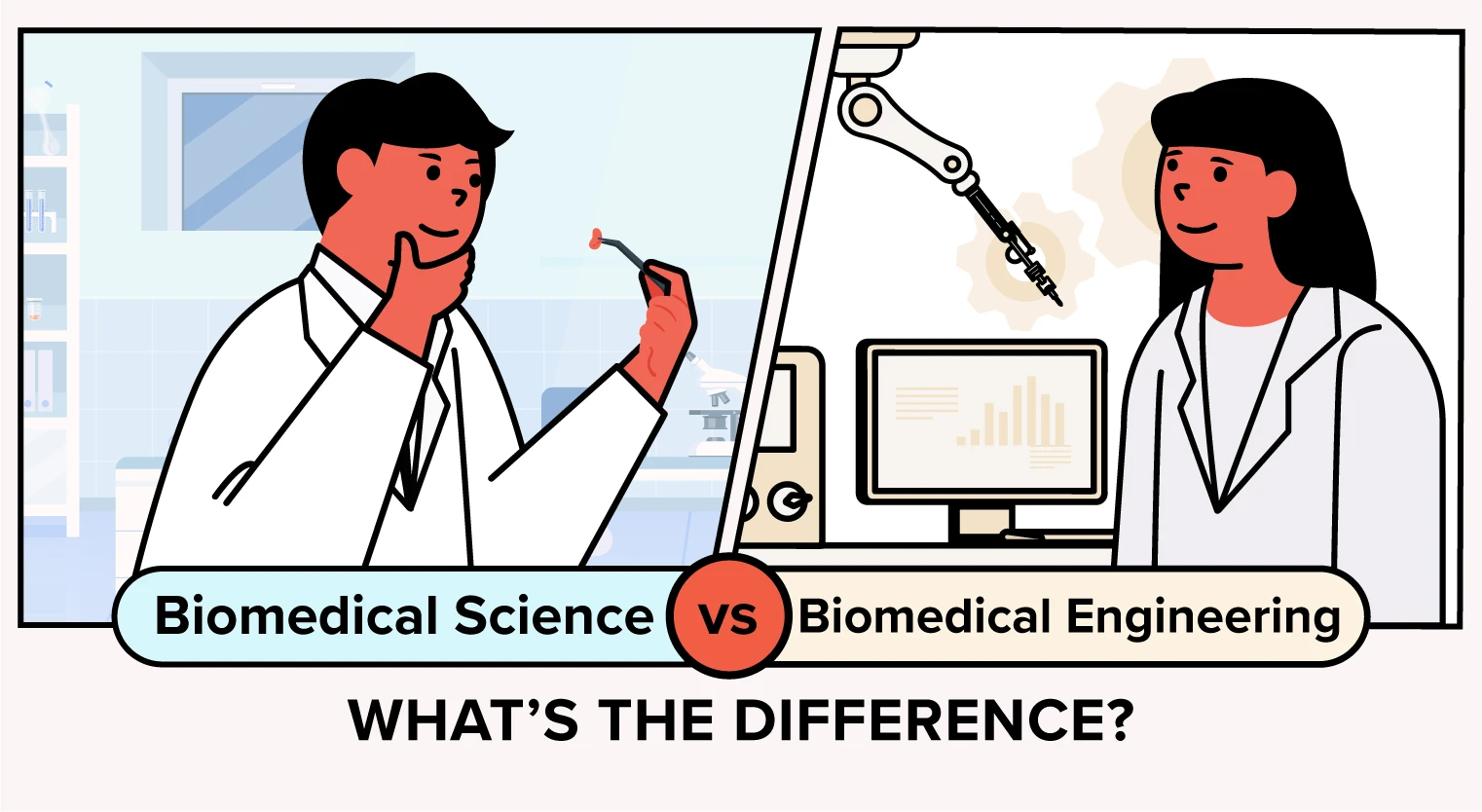A-Level vs Foundation: Which One Should You Pick?
Confused and unsure about the various Pre-University choices, especially A-Level and Foundation? Explore the various aspects you need to consider before deciding whether A-Level or Foundation is better suited for you!
Updated 16 May 2019

Are you plagued by the never-ending dilemma of which Pre-University programme to take?
You may have considered taking A-Level. After all, you've heard of its glorious reputation. But wait, what about Foundation? You've heard that it's faster. But is it better than A-Level?
Put aside your worries and confusion, for in this article is a comprehensive comparison between A-Level and Foundation. We explore the differences to help you with your decision-making process. Now, let’s get down to business!
#1. Duration of study

A-Level: Duration of 15 to 24 months depending on intake. Some colleges also offer a 12-month express route.
Foundation: A shorter programme that typically takes 12 months to complete.
What should you consider:
Are you in a rush to complete your studies?
Between the two courses, Foundation is no doubt the quicker route, with a shorter study duration that could propel you ahead of your A-Level peers by up to 1 year. However, this does translate to more hectic class schedules and shorter semester breaks. Expect to juggle frantically between lectures, assignments and perpetual class tests.
In contrast, most A-Level programmes are over the duration of 15 to 24 months. The advantage is that it gives you more time to master your study material, but at the price of a slightly longer study duration.
#2. Depth of study

A-Level: Offers in-depth study in your choice of 3-4 subjects.
Foundation: Focused and specialised, where you'll be exposed to a number of subjects to equip you with the fundamentals of a particular study area.
What should you consider:
Taking on A-Level will have you swimming in books and notes as the study is comprehensive. Although you will be taking just 3-4 subjects, the volume of knowledge and learning material that you will need to comprehend, master and apply is substantial. In fact, many A-Level graduates feel that they have an easier time during their 1st year at university compared to their peers as some of the content had already been covered in A-Level.
Foundation, on the other hand, will prepare you with the basics of your chosen field of study, be it Engineering, Architecture or Business. While you will get a head start in learning the material that’s related to your chosen field, Foundation programmes generally will not bring you up to as high a level as A-Level, partly due to its shorter duration and the way the programme is administered.
#3. Level of difficulty

A-Level: The general perception is that A-Level is harder than Foundation, as it is administered by well-established external parties (e.g. Cambridge).
Foundation: Foundation is usually said to be easier than A-Level since it is administered by the provider university.
What should you consider:
You are expected to work hard for A-Level as the journey will be arduous and the course intensive. A-Level papers are set and marked by esteemed external parties such as the Cambridge International Examinations (CIE), so you can be certain that the bar is set high. This helps to set the tone when applying for university or even scholarships, as having strong grades in A-Level will demonstrate your academic prowess.
On the other hand, Foundation is generally perceived as the easier course in comparison to A-Level. Since Foundation courses are administered and managed by the provider university, the level of difficulty and standard can vary greatly from one institution to another. This can impact your entry into other universities, especially if you are vying for top-tier universities in the UK or looking to apply for competitive degrees such as Medicine and Pharmacy.

#4. Level of flexibility

A-Level: Offers an extensive range of courses that you can choose from, covering both Science and Arts.
Foundation: Core subjects are more focused and tailored to your study area. Some electives are available but often from a more controlled set of subjects.
What should you consider:
A-Level offers an extensive range of subjects that you can choose from. However, you can only pick a combination of 3-4 subjects. The good news is that A-Level has no predetermined subjects, and this allows for greater flexibility. You can choose subjects that you enjoy, subjects that you are good at or those that are relevant to your degree.
For A-Level, selecting the right combination of subjects will allow you to keep your degree options open to both Science and Humanities. In fact, many students opt for Mathematics and Science subjects (e.g. Biology, Chemistry, Physics), enabling them to pursue both Science and Humanities degrees later on.
Foundation, on the other hand, offers a controlled set of core subjects as well as electives. This means that you will still get to choose some subjects that may be of interest to you, but they will be within a set of subjects that are tailored to your intended pathway.
For example, if you plan on pursuing an English Language degree, your Foundation electives may consist of Introduction to Drama, Poetry and Creative Writing. And because subjects in Foundation are already specific to a certain degree, changing streams later may not be as easy.
Apply for university with EduAdvisor
Secure scholarships and more when you apply to any of our 100+ partner universities.
Start now#5. Method of assessment

A-Level: 100% exam-based, separated into 2 parts — AS Level and A2 Level. Your final A-Level grade will be determined from both AS and A2 Level.
Foundation: Assessment criteria will vary across institutions. However, you can expect to be evaluated based on both exams and coursework.
What should you consider:
What is your preferred style of studying?
Since A-Level is completely exam-based, you can fully concentrate on one final exam at the end of each part (AS and A2), without the distraction of projects or assignments. On the flip side, this can be a lot of pressure for some, since you only have one chance to do well.
If that is not your cup of tea, perhaps you'd like to work consistently and be assessed continuously throughout the duration of your studies? This is possible with Foundation, as it has a more varied style of assessment.
Over the duration of your Foundation course, you will be writing reports, engaging in group projects, giving presentations and taking class tests. Your overall grade will be distributed among these many tasks, therefore each will carry less weight compared to A-Level’s one final exam per part. This makes things less stressful as you will be accumulating marks as you go along.
#6. Level of recognition

A-Level: One of the most well-acknowledged qualifications globally.
Foundation: May not be accepted by other universities, especially those abroad.
What should you consider:
Are you planning to study abroad?
As a programme that is internationally recognised, A-Level gives you the option to pursue further education outside of Malaysia. Although it is generally the chosen Pre-University programme for students who want to study in the UK, many other countries open their doors to those with A-Level qualification, such as Australia, USA, Canada and Singapore.
You can use A-Level to pursue degrees locally too, as it is recognised in most private universities. Your choices are certainly much broader after completing A-Level.
Foundation, on the other hand, is usually chosen by those who plan to study locally, usually in the same university. Because Foundations are tailored to specific degree programmes in the provider university, it may be difficult for you to switch from one university to another one, especially for Science-related degrees.
However, some universities do have special agreements with other universities to accept their Foundation course. This gives you more options, but be sure to double check with the receiving university.

#7. The cost

A-Level: Fees can range from RM16,000 to a massive RM120,000 at international schools.
Foundation: Fees typically range from RM9,000 to RM27,000.
What should you consider:
Is money a concern for you?
Although A-Level is generally more expensive, you are really paying to get more. Aside from the longer duration of study, you will be enrolling in the golden standard of Pre-University courses — the cream of the crop. You’ll also be paying for the international recognition that allows a wider option of universities as well as a higher learning standard.
The price range for Foundation starts off comparatively cheaper than A-Level because of the shorter duration of study. Usually, Foundation in Science will be slightly more expensive than Foundation in Arts or Business. Foundations are still a good deal as you are paying moderately for a faster route as well as a smooth transition to a degree.
There is an overlap in the price range for both courses, however. This means that some Foundations can be a lot more expensive than the cheapest of A-Level programmes, so consider which institution you wish to enrol in carefully.
Figure out if the price you pay is worth what you get in return. Both can be a good deal depending on your specific need and priorities. Remember to also consider applying for scholarships and other bursaries that may fund your studies.
It must be noted that neither course is better than the other. This holds true for other Pre-University courses as well. It all boils down to what suits you best and that is determined based on your priorities, needs and preferences. With these facts unveiled, it is time for you to make the best decision for you!






